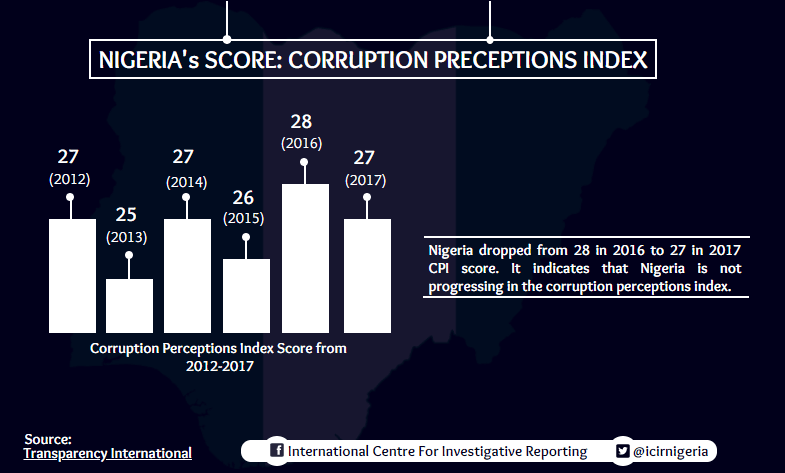A few stories about corruption in Nigeria and my conclusion
When Nigerians talk about corruption, they refer not only to the abuse of state offices for some kind of private gain but also to a whole range of social behaviors in which various forms of morally questionable deception that enable the achievement of wealth, power, or prestige as well as much more mundane ambitions. Nigerian notions of corruption encompass everything from government bribery and graft, rigged elections, and fraudulent business deals, to the diabolical abuse of occult powers, medical quackery, cheating in school, and even deceiving a lover.
Daniel Smith, A Culture of Corruption: Everyday Deception and Popular Discontent in Nigeria
The History of Nigeria is filled with many tales of corruption. I would begin by sharing few out of many.
A story is told in Daniel Smith’s book A culture of Corruption of a Texas oil executive who was defrauded of $100,000 by Nigerians claiming to be the Nigerian National Petroleum Corporation (NNPC), It was a carefully plotted exercise which involved the con artistes flying the Texas oil executive to Nigeria, passing him through immigration without a Visa, lodging him in Sheraton amongst many other assuring moves, the fraudsters perfectly executed the operation with a sense of humour as the Nigerian mail correspondence’s name was Onye Beribe 🤭 (which means You are a fool in english)

I was shocked when I read this paragraph in Richard Bourne’s book Nigeria: A New history of a Turbulent Century,
In an article in west Africa on 3 Nov, 1951, She ( Funmilayo Ransome — Kuti) wrote that, as soon as it was announced that successful candidates would get 300 pounds a year in allowance, a number of voters said ‘those who were nominated must pay for our vote.’
You mean people have been demanding for money in exchange for votes even before Independence? 😏
In This present darkness the late Stephen Ellis talks about how as at 1922, Letters were sent from Nigeria to England, America and India offering magical charms and potions in exchange for money. Most of the charms were nonsense and the recipients were invariably asked to send more money if they wanted more powerful ones.
I didn’t know we go way back 🙆🏽♂️
In recent times, Harassment by Police and Special Anti-Robbery Squad (SARS) for money has been on the increase and almost uncontrollable.
While many attribute this act by law enforcement officials to many factors amongst which low remuneration is prominent.
I asked can raising salaries increase reduce police corruption? I got an answer I wasn’t prepared for.
According to a research carried out by the International Growth Centre
As part of an ambitious policy reform experiment in 2010, Ghana doubled police salaries, in part, to reduce petty corruption on its highways.
However, after analysing the amount of bribes paid during more than 2100 long-haul truck trips on a road between Ghana and Burkina Faso between 2006 and 2014, IGC-funded researchers find that police officers actually demanded larger bribes after the salary increase, despite allowing more trucks to pass without taking bribes.
The value of bribes paid at each police checkpoint increased by over 25%. Overall, the amounts of bribes paid on the road increased by 23% due to the salary increase.
Researchers Jeremy D. Foltz and Kweku A. Opoku-Agyemang suggest that police officers may have had a higher sense of their own worth after the salary increase, and thus asked for more expensive bribes. Another possibility is that supervisors or families asked for more money from the officers after learning of the salary increase.
Ahh, you don’t mean it? Interesting
Over the years, there have been talks about ending corruption in Nigeria, while I’ve been passively listening until recently, I’ve come to the conclusion we can reduce but not end corruption. Corruption is simply a manifestation of our selfish interests as humans which can only be curbed. No country is without corruption.
For Corruption to be reduced our orientation has to change, we can curb our selfish desires via new thinking and constraints. Have you ever held your urine because you were doing something interesting or weren’t in a position to use the restroom? We can learn to curb our selfish desires.
People steal/defraud/extort because there’s an avenue to steal, the removal of middlemen would cause a decline in cases of corruption, direct payments, digitised systems would promote transparency. It sounds like some people would lose their jobs but hey new jobs would abound. Also If fraudsters and corrupt officials are appropriately penalised for their crimes others would behave themselves well.
I probably haven’t said anything you haven’t heard before if you’re from Nigeria, okay maybe the stories so I’d let the words of Feyi Fahenmi end this article
What do these stories tell us? Is Nigeria hopeless or cursed? Can things ever change? Have we always been this way or is it a recent thing?
I have a simple answer to all of these questions — we don’t take our problems seriously enough. None of our challenges can withstand the power of sustained thinking if we really apply ourselves. But we start by misdiagnosing the problems and then naturally applying the wrong treatment.
As a result, the hand of history remains strong on Nigeria.

Leave a Reply